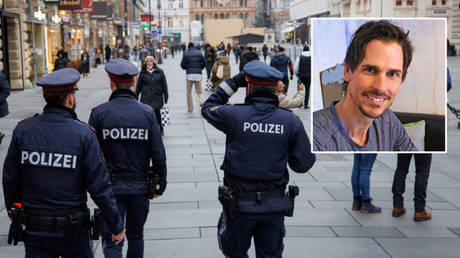General Joseph L. Votel (Ret.) joined BENS as CEO & President in January 2020 following a 39-year military career where he commanded special operations and conventional forces at every level; last serving as the Commander of U.S. Central Command (CENTCOM) where he was responsible for U.S. and coalition military operations in the Middle East, Levant, and Central and South Asia. General Votel’s career included combat in Panama, Afghanistan, and Iraq and he led the 79-member coalition that successfully liberated Iraq and Syria from the Islamic State Caliphate. General Votel preceded his assignment at CENTCOM with service as the Commander of U.S. Special Operations Command and the Joint Special Operations Command.
The Cipher Brief: Did you ever envision that the U.S. would pull out so quickly or completely leaving the Afghan military on its own without U.S. air support?
General Votel: I did not anticipate this during my time – but once the President sets a hard departure date – then a fast withdrawal is inevitable. No Commander wants to accept unnecessary risk with troops on the ground when you are up against a clearly articulated departure date.
The Cipher Brief: Intelligence assessments wildly missed the mark on how fast Kabul would fall, what factors contributed most directly to this?
General Votel: Certainly, the departure of our own capabilities is a big part of this; the lack of direct contact with Afghan leaders is another important factor; and, of course, once it was clear that we were departing (and took our Commander out) — we lost priority and access with our normal and reliable Afghan intelligence sources.
The Cipher Brief: U.S. personnel are facing a deteriorating security situation at the Kabul airport while U.S. forces are still deploying for the contingency operation, another sign that the administration underestimated how fast the Taliban would reach Kabul. The U.S. could have chosen to slow the Taliban advance using airpower, why didn’t it happen, do you think?
The Cipher Brief hosts private briefings with the world’s most experienced national and global security experts. Become a member today.
General Votel: I think it is very clear that this was no longer a priority for our Government. The mission right now, at least articulated over the weekend, is about supporting evacuation of the diplomats and helping with the departure of those Afghans who assisted the US and meet the criteria for evacuation. While I don’t know this for certain — I believe what we were trying to do with over the horizon air support in a rapidly developing situation, was not optimal or overly effective. It doesn’t seem to have done much – if anything.
The Cipher Brief: The U.S. has allowed U.S. supplied military hardware, weapons and technology to fall into the hands of the Taliban, a group responsible for the deaths of U.S. personnel and thousands of innocent Afghans. The U.S. government holds private citizens and corporations accountable for far lesser violations of export violations involving dual-use technology or military equipment, etc. How should Americans think about this situation now, where the Taliban will use equipment, paid for the by the U.S. taxpayer, to potentially perpetrate acts of violence against U.S. interests, and erode democratic values that the U.S. tried to introduce to Afghanistan?
General Votel: Not sure on this. Unfortunately, it is not the first time we have seen this — remember ISIS in 2014, in Mosul? I suspect these will be more trophy pieces than they will be hard military capability – with the exception of small arms, mortars, and artillery. Most of this will be difficult for the Taliban to sustain – and they probably prefer their own gear, anyway.
The Cipher Brief: There is a lot of anger among the national security community right now. What would you say to individuals who have suffered because of the U.S. role in Afghanistan, who may be feeling anger and rage?
General Votel: I can’t really comment on anger in the national security community — I am sure that exists, but the sentiment that seems more strong to me, is disappointment. No one wants what we are seeing now. I think most security professionals can accept a decision to depart by the Commander in Chief — that is well within his authority, and everyone understands this; what is harder to accept is the manner in which this happened, and how it has played out. It was hard for me to watch Taliban sitting at a conference table that I once sat at with the Afghan President. In a number of public engagements, I have participated in lately – people have asked me if this whole effort was a waste. My response has been consistent. American military personnel, members of the IC and the diplomatic corps conducted themselves honorably throughout this war. They responded when the Nation called and did their best for our Country, each other, and the Afghan people. There will be plenty of time to place the blame – but the vast, vast majority of Americans who participated in some aspect of the Afghan War did so nobly and to the best of their ability. We should not lose sight of this. That this did not turn out the way we all hoped — is not their fault … and I would not want anyone (especially families of our wounded and killed) to think these efforts were in vain. That is not how I thought about them at the time, and it is not how I think about them now. They answered when the Nation called.
Have a perspective to share? Email Editor@thecipherbrief.com
Read more expert-driven national security insight, perspective and analysis in The Cipher Brief
The post The Painful Lessons of Afghanistan appeared first on The Cipher Brief.
find more fun & mates at SoShow now !


